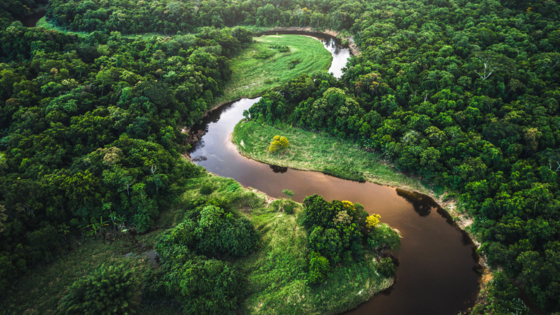U.S. Department of State’s Forest Investor Club Releases Inaugural Annual Report, Encouraging Billions in Nature-Based Investments

Washington, DC, 13 September 2023 – The Forest Investor Club (FIC), led by the World Business Council for Sustainable Development (WBCSD), released its inaugural Annual Report, which shows significant deployments of natural capital investments by FIC members that are poised to grow in coming years as further collaborative efforts come to fruition. The FIC Annual Report, the first since the initiative’s establishment in 2021 by the U.S. Department of State, examines the landscape for investment in nature-based solutions (NbS), FIC’s current undertakings, and innovative NbS investment strategies, as the world seeks to curb the devastating effects of climate change and mitigate nature and biodiversity loss.
Launching a set of case studies that highlight multi-million-dollar investment strategies led by FIC members, the report identifies key innovations that can help overcome existing barriers for NbS investment, and scale the amount, pace, and geographic spread of capital deployed into forests and nature. While investments in nature could provide up to 37% of total cost-effective climate change mitigation efforts and represent a substantial market opportunity that could generate up to USD $3.6 trillion annually by 2030, NbS face a significant financing need of USD $11 trillion through 2050 to meet ambitious climate change, biodiversity, and land degradation targets. In order to reach that goal, global investments in nature will need to double by 2025 and triple by 2030 from existing levels.
“Mobilizing finance to conserve, restore, and sustainably manage nature is critical to meeting climate and biodiversity goals,” said Daniel Kandy, Lead, Forests, Nature, and Climate, at the U.S. Department of State. “The importance of investments in nature-based solutions has only grown since the Forest Investor Club was launched at COP26, and the FIC’s effort has continued to gain momentum with WBCSD taking on the role of secretariat for the Club. We look forward to our continued partnership with WBCSD and the Forest Investor Club to further scale these critical investments.”
“Natural capital underpins the health of communities, businesses, and economies all over the world, and a comprehensive and collaborative approach is needed to meet ambitious goals for scaling investments in nature-based solutions to address systemic global challenges,” said Ryan Whisnant, Director, Land Use Finance at WBCSD. “The progress demonstrated by Forest Investor Club and its members in developing new approaches and partnerships to unlock capital, originate deal flow, and identify innovative solutions will help to protect, restore, and sustainably manage nature and forests for generations to come. We are excited to continue this work to achieve our collective goals.”
The following FIC member investment strategies (among others) were highlighted through new case studies launched as part of the report:
- Apple launched the Restore Fund with Goldman Sachs and Conservation International in 2021, committing up to an initial $200 million to restore degraded areas and invest in sustainable working forests, generating attractive returns while removing carbon. In 2023, Apple expanded the Restore Fund in partnership with Climate Asset Management through an additional commitment of up to $200 million, creating a novel blended strategy focused on nature-forward agriculture combined with the restoration of critical ecosystems.
- New Forests, a global investment manager of nature-based real assets and natural capital strategies, has partnered with DFIs to launch the African Forestry Impact Platform (AFIP), which invests in sustainable forestry operating companies and related assets in sub-Saharan Africa. With an initial USD $200 million signed in investment from its DFI partners and a goal to scale to $500 million through follow-on investment from long-term institutional investors, it aims to deliver commercial returns alongside conservation and sustainable development outcomes at scale.
- An impact-first investment program managed by the globally recognized non-profit Conservation International (CI), CI Ventures combines 36 years of climate and conservation science to design, showcase, and mainstream mechanisms to address the investment gap in biodiversity and climate concerns, while acting as a catalytic force to bring further funding to the space. Through its venture philanthropy model, CI Ventures has leveraged USD $19 million in risk-tolerant capital to attract and mobilize an additional USD $86 million in co-financing and follow-on investments.
FIC member organizations include (alphabetical): Apple, BTG Pactual Timberland Investment Group (TIG), Conservation International, Deutsche Bank, U.S. International Development Finance Corporation (DFC), Finnfund, Goldman Sachs, Lombard Odier Investment Managers (LOIM), Manulife Investment Management, Mirova, The Nature Conservancy, New Forests, Norfund, Pollination, SAIL Ventures, and the U.S. Agency for International Development (USAID). Along with network partners Convergence and the Natural Capital Investment Alliance (NCIA), FIC members began cooperative activities under the FIC umbrella in 2022.
Mark Wishnie, Chief Sustainability Officer, BTG Pactual Timberland Investment Group, said in response to the report: “There is a growing demand for investments that have a positive impact on climate, nature, and society. Yet, there is a shortage of high-quality, scalable investment opportunities in this area.” He added: “We need new approaches to investing if we want to address these urgent challenges. The Forest Investor Club exemplifies how collaboration can facilitate partnerships that increase access to capital and lead to new investment opportunities.”
Emily Kreps, Head of ESG and Sustainable Finance, Investment Bank Origination & Advisory and Head of ESG, Americas, Deutsche Bank, said: “The financial sector has a critical role to play in developing innovative investment models that can help conserve, manage, and restore forests and nature. The access to expertise, networks, and partnerships facilitated by the Forest Investor Club are crucial to helping investors unlock and scale investment opportunities in this asset class across the globe.”
Agustin Silvani, Senior Vice President, Conservation International, said: “Protecting natural ecosystems could deliver nearly a third of the global emissions reductions needed to avoid the worst effects of climate change. Yet, nature-based solutions get only 3 percent of global climate funding. While public and private-sector investments in forests and nature are increasing, we need to close an $11 trillion financing gap by 2050 to meet agreed-to climate and biodiversity goals. This Forest Investor Club report highlights what can be done to overcome the investment barriers and accelerate the flow of capital required for conserving essential ecosystems.”
Additionally, Johnny Brom, Founder and CIO, SAIL Ventures, remarked that: “The Forest Investor Club provides a great platform for SAIL Ventures to join forces with other industry leaders to drive the growth of natural capital and highlight the benefits of this asset class to institutional investors.”
The U.S. Department of State formed the FIC in November 2021 at COP26 as part of its broader USD $9 billion commitment to conserve and restore forests and other natural ecosystems. Recognizing the immense value that natural capital provides in supporting the health and livelihoods of communities and economies around the world and the potential for nature-based solutions to address global systemic risks linked to climate change, biodiversity loss, and land degradation, the FIC and its members are committed to accelerating the deployment of capital into the protection, restoration, and sustainable management of forests and nature. WBCSD assumed the role of Secretariat of FIC at the end of 2022.






